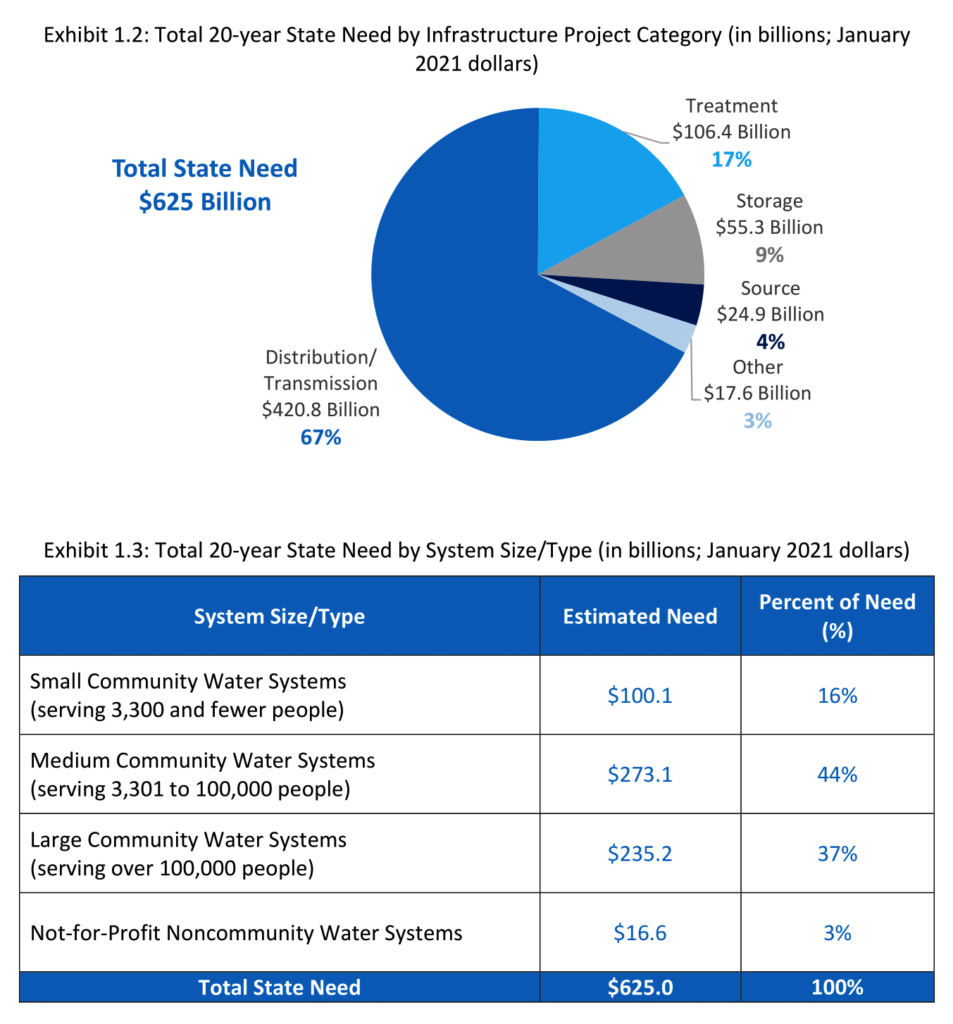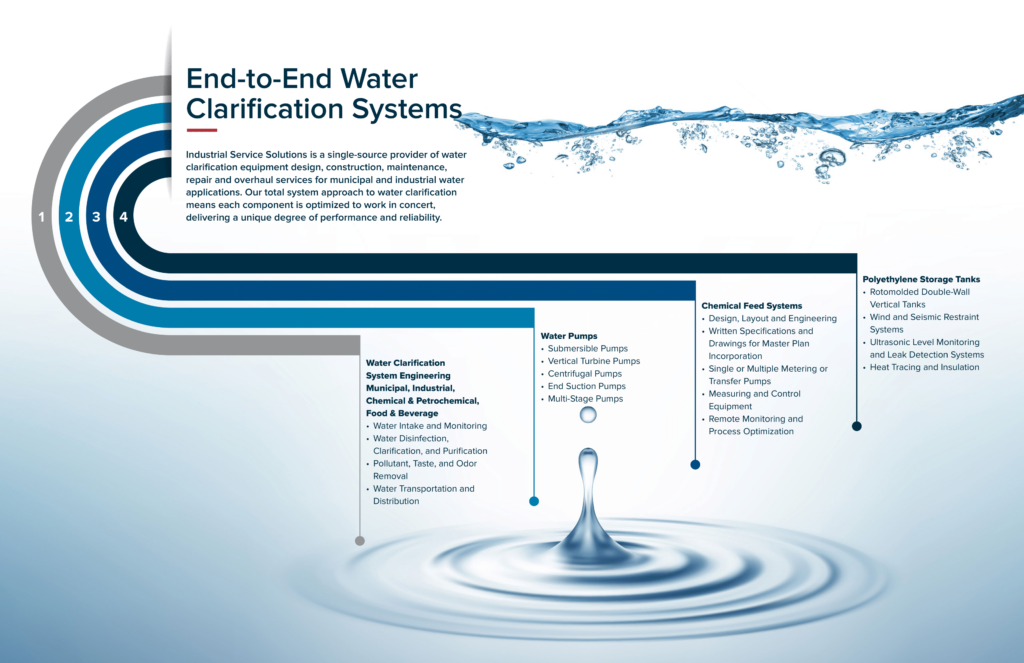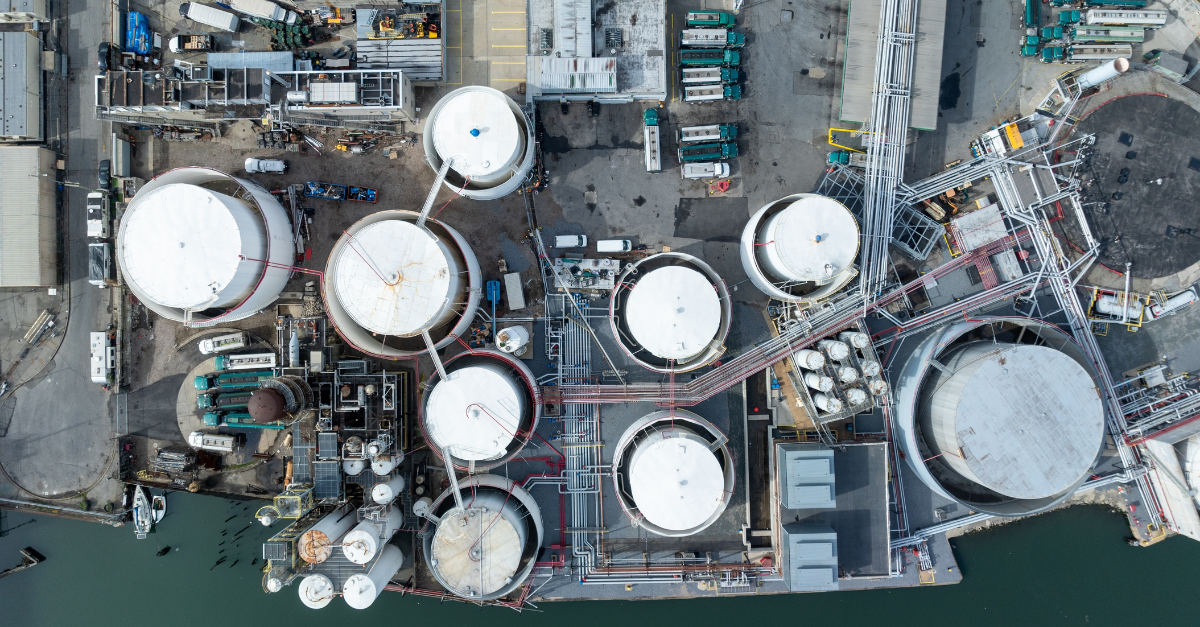The 7th Drinking Water Infrastructure Needs Survey and Assessment (DWINSA) report, recently sent to Congress by the U.S. Environmental Protection Agency (EPA), represents a pivotal moment in the ongoing discussion about the future of the nation’s water infrastructure.
This report arrives at a time when the aging water infrastructure, marked by decades of underfunded maintenance and escalating challenges, calls for an urgent, comprehensive response to safeguard public health and provide water resilience.
Breakdown of the DWINSA Report
The DWINSA report sends a clear message: U.S. public water systems need a substantial upgrade, totaling $625 billion. This investment will cover essential improvements, including pipe replacements, treatment plant upgrades, and storage tank enhancements.
In the report, funding is allocated based on the size of community water systems. Small communities will receive $100.1 billion, while medium-sized communities are set to get the most with $273.1 billion. Large communities are allocated $235.2 billion. Additionally, not-for-profit non-community water systems are recognized with a need for $16.6 billion.
The funding needs are also broken down by category, including distribution and transmission. However, a significant part of the investment, $106.4 billion, targets water and wastewater treatment systems. Upgrading these is vital for maintaining water quality and preparing for future challenges, such as new pollution types and changing environmental conditions.

Overall, the proposed $625 billion investment represents a commitment to safe, reliable, and sustainable water services across the U.S. It emphasizes the need for a strategic approach to support water systems of all sizes and type.
Water Challenges & Opportunities
The DWINSA report presents a formidable task for municipalities: a need for a $625 billion investment to upgrade water infrastructure. This challenge is compounded by financial, logistical, and technical issues.
Addressing these issues requires recognizing the diverse needs of community water systems. Small, medium, and large systems each demand a tailored approach to infrastructure improvements. These diverse needs underscore the necessity for specialized expertise.
In this context, the role of engineering consulting firms and government civil engineers becomes necessary. Their knowledge, innovative thinking, and strategic guidance are essential in helping municipalities navigate the complexities of modernizing water systems effectively.
The significant investment outlined in the report also opens doors to opportunities for potential partners like Industrial Service Solutions (ISS). With expertise in water treatment plant upgrades, storage tank maintenance, and distribution network improvements, ISS is in sync with the multifaceted needs highlighted in the report.

The success of this massive upgrade relies heavily on partnerships. As municipalities access DWINSA grants and other funding sources, partnerships with seasoned firms like ISS are important. Such collaboration will help upgrade water infrastructure systems that are robust and efficient, while also being equipped to meet future challenges.
Shifting Water Infrastructure Landscape
Looking ahead, U.S. water infrastructure projects are gearing up for a sustainability-focused transformation. The substantial investment from the DWINSA report is set to spur innovation in water treatment and distribution. It aims to advance the use of efficient, safe, and sustainable technologies, addressing immediate needs and preparing for future environmental challenges, including climate change.
In this shifting landscape, ISS is ready to contribute significantly to achieving the DWINSA report’s objectives. With deep expertise in water and wastewater systems, we look forward to contributing to standard water infrastructure upgrades that also embrace sustainable practices and advanced technologies.
The DWINSA report, therefore, represents more than the current state of water infrastructure. It serves as a roadmap for a strategic, sustainable overhaul of the nation’s water systems. With key players like ISS at the forefront, the U.S. is on course for a resilient and eco-friendly water future.
Upgrading Public Water Systems Together
Recognizing the unique opportunity presented in the DWINSA report to improve how we manage water is imperative for municipalities and stakeholders. At this pivotal juncture, the path forward is clear: collaboration, innovation, and a commitment to environmental stewardship are key.
Partnering with experts like Industrial Service Solutions (ISS) can bring the ambitious plans of the DWINSA report to life. With expertise in water and wastewater treatment, ISS stands ready to help municipalities navigate the complexities of water infrastructure upgrades, integrate sustainable solutions, and harness advanced technologies.
Contact ISS today and take the first step toward a brighter, water-secure future. Together, we can make sure the substantial investment outlined in the DWINSA report translates into forward-thinking water infrastructure.


